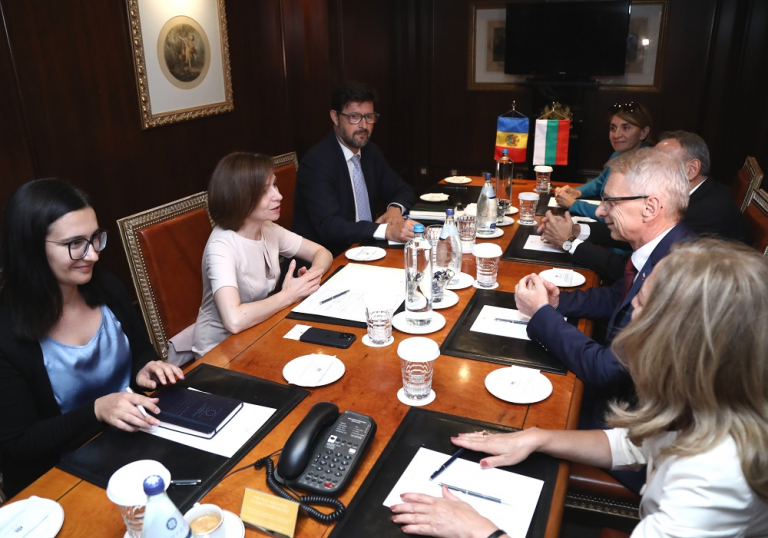
22.08.2023
Promotion of teaching the Bulgarian language and culture and joint education projects between Moldovan and Bulgarian universities. These opportunities for a more active presence of Bulgaria within the Bulgarian community in Taraclia were on the agenda of the meeting between Mrs. Maia Sandu, President of the Republic of Moldova, and Prime Minister Acad. Nikolai Denkov in Athens. By doing so Bulgaria will help Moldova weaken the Russian influence among the Moldovans of Bulgarian extraction. Russia interferes into Moldova’s internal affairs, Mrs. Sandu said. Criminal groups controlled by the Russian Federation even buy votes in elections. The government in Kishinev is worried over this, in addition to its great concern over the situation in Ukraine.
Moldova works hard to join the European Union (EU) and hopes to be granted the status of a candidate member country of the Community.
Prime Minister Acad. Nikolai Denkov vowed full support for the Moldovan cabinet’s policy on behalf of the EU in general and of Bulgaria in particular. He proposed joint projects with the University of Rousse in technology and IT special subjects and with the University of Sofia and the University of Veliko Turnovo in humanities, for instance European studies. “This will give European education and a European perspective to young people in Taraclia,” the Prime Minister said.
Accession to the Schengen Area is a priority for Bulgaria and Romania. The two countries’ joint moves towards that aim were discussed in Athens by Prime Minister Acad. Nikolai Denkov and his Romanian counterpart Ion-Marcel Ciolacu. Acad. Denkov communicated two of Bulgaria’s main arguments supportive of the gains from Schengen membership: the abolition of the borders between Bulgaria and Greece and between Bulgaria and Romania would allow transferring the potential released to strengthen the protection of the Bulgaria-Türkiey border, which is an external EU border. In addition, there will be no vehicle lineups at the border crossing points between the EU member states and this will significantly reduce carbon dioxide emissions.
The two Prime Ministers reiterated their interest in building a new bridge over the Danube, the launch of a Rousse-Giurgiu ferry link and the speedier implementation of the Fast Danube project.